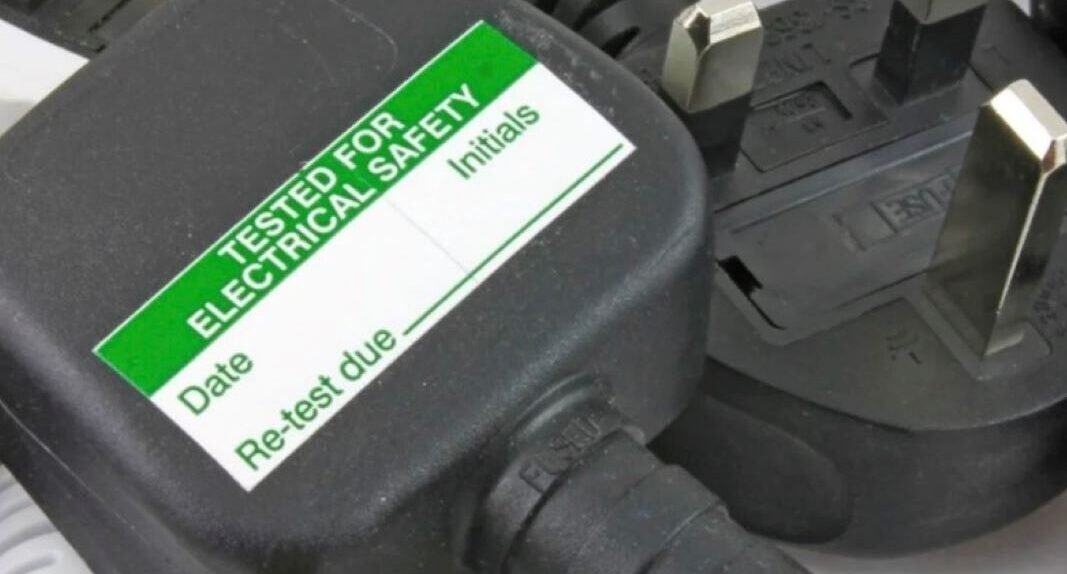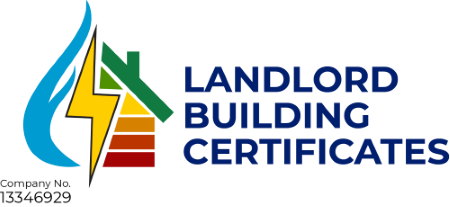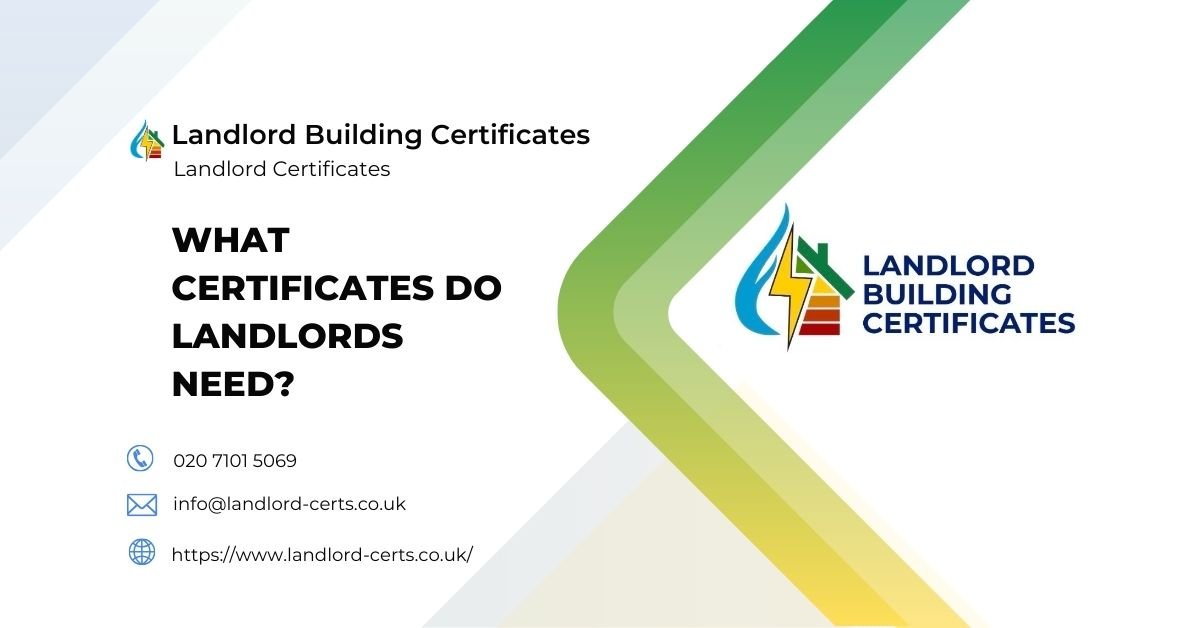What certificates and appliances must a landlord provide in the UK?
Landlords in the UK must meet legal safety requirements when letting out a property. This includes holding valid safety certificates and ensuring that any supplied appliances, such as electric cookers or gas boilers, are safe and properly maintained. These responsibilities can differ based on the type of tenancy, whether the property is furnished, and regional rules across England, Scotland, Wales or Northern Ireland.
Here's What We Have Covered In This Article
Gas Safety Certificate (CP12)
A Gas Safety Certificate, also known as a CP12, is mandatory under the Gas Safety (Installation and Use) Regulations 1998.
Legal Requirements
Every rental property with a gas supply must undergo an annual safety check by a Gas Safe registered engineer. This inspection includes boilers, gas cookers, flues, and pipework. The resulting certificate confirms the safe operation of all gas appliances.
Responsibilities and Timelines
Landlords must:
-
Conduct checks every 12 months
-
Provide the certificate to existing tenants within 28 days
-
Give new tenants a valid certificate before their tenancy begins
-
Retain records for a minimum of two years
Cost and Provider
Gas safety inspections typically cost between £60 and £90, depending on the number of appliances. Use the official Gas Safe Register to locate a qualified engineer. Our gas certificates start from £35.
Electrical Installation Condition Report (EICR)
The Electrical Safety Standards in the Private Rented Sector (England) Regulations 2020 mandate an EICR for all rental properties.
What the EICR Covers
A qualified electrician will:
-
Inspect fixed electrical systems, including sockets, wiring, consumer units, and lighting
-
Assess the overall safety and integrity of the electrical installation
-
Provide a report indicating whether the property is “satisfactory” or if remedial work is required
Compliance Timelines
-
EICR must be renewed every five years or sooner if recommended
-
Report must be issued to new tenants before move-in
-
Existing tenants should receive a copy within 28 days
-
A copy must be provided to the local authority within 7 days upon request
Cost and Typical Issues
Costs range between £100 and £300 depending on property size. Common issues found include outdated consumer units, damaged sockets, and overloaded circuits. Our EICR prices start from £75.
Energy Performance Certificate (EPC)
Required under the Energy Performance of Buildings (England and Wales) Regulations 2012, an EPC is essential before a property is marketed.
Purpose and Ratings
An EPC assesses the energy efficiency of a property, assigning a rating from A (most efficient) to G (least efficient). Since April 2020, landlords must ensure a minimum rating of E before legally letting a property.
Validity and Disclosure
EPCs are valid for 10 years. The document must be provided to potential tenants at the earliest opportunity and no later than when a tenancy agreement is signed.
Improvements and Cost
Common ways to improve ratings include cavity wall insulation, energy-efficient lighting, and upgraded boilers. EPC assessments typically cost between £60 and £120. Use an accredited Domestic Energy Assessor to carry out the inspection. Our EPC price is £60.
Fire Safety Requirements and Responsibilities
There is no single fire safety certificate, but landlords must follow certain legal rules to keep tenants safe from fire risk. These include installing smoke alarms, carbon monoxide detectors, and providing fire-fighting equipment in certain properties.
Fire Safety for All Rentals
-
A smoke alarm must be fitted on every floor used as living accommodation
-
Carbon monoxide alarms are needed in any room with a solid fuel-burning appliance
-
Alarms must be checked and confirmed as working on the day a new tenancy begins
Fire Safety in HMOs
Houses in Multiple Occupation (HMOs) have more detailed rules:
-
Fire extinguishers and fire blankets may be required
-
Escape routes must be kept clear and properly signposted
-
Emergency lighting may be required in larger HMOs
Furniture and Furnishings
All furniture provided by the landlord must meet fire resistance standards set by the Furniture and Furnishings (Fire) (Safety) Regulations 1988. This includes sofas, armchairs, mattresses, and cushions.
Stay Legally Covered
Make sure your properties meet every legal requirement with our expert compliance checks.
Legionella Risk Assessment Certificate
Legionella is a type of bacteria that can develop in water systems and cause a serious type of pneumonia called Legionnaires’ disease. Landlords are legally responsible for assessing and controlling the risk in their rental properties.
What’s Involved
A risk assessment looks at the potential for Legionella to grow in the water system. Properties with stored water or infrequently used outlets are more at risk. While landlords can carry out basic assessments themselves, hiring a qualified assessor is a safer option, especially for HMOs or properties with complex plumbing.
When It Should Be Done
-
Before letting out the property to new tenants
-
If plumbing changes are made
-
After long periods of vacancy
Cost and Record Keeping
Assessments usually cost between £50 and £200. Although there is no legal requirement to have a certificate, it’s important to document the assessment and actions taken. This provides protection if a tenant later raises concerns.
Need Safety Certificates?
We handle all landlord certifications including gas, EPC, and electrical reports. Fast and fully accredited.
Portable Appliance Testing (PAT Certificate)
While not strictly a legal requirement, PAT testing is recommended for landlords who provide electrical appliances such as kettles, fridges, and microwaves. It helps show that you have taken steps to ensure the equipment is safe.
What PAT Testing Includes
A qualified electrician or PAT tester checks appliances for safety, wear, and electrical faults. Each tested item is usually labelled with a pass or fail sticker and the date of the test.
How Often to Test
-
Annually is best for frequently used appliances
-
Keep a log of all tested items and results
Why It Matters
Even though the law only requires fixed installations to be tested under EICR, portable appliances can still cause harm. PAT testing supports health and safety duties under the Landlord and Tenant Act and the HHSRS system. Our PAT testing price starts from £55.

Building Regulation Completion Certificate
If construction or significant alterations have been made to a rental property, a Building Regulation Completion Certificate may be required. This certificate confirms that the work has been completed in accordance with building regulations enforced by the local authority.
When Is This Certificate Required?
It applies to projects involving structural changes, electrical rewiring, loft conversions, extensions, and new heating installations. Without this certificate, landlords may face difficulty during property sales or insurance claims.
Why It Matters
Mortgage lenders and future buyers often request this certificate as evidence of compliant and inspected work. Not having it can lead to enforcement action from building control or delay property transactions.
How to Obtain It
The certificate is issued after a final inspection by building control officers. Landlords should ensure all contractors are aware of the inspection schedule and that no work is concealed before inspection.
Do Landlords Need Planning Permission or Building Control Approval?
Planning permission and building control serve different purposes. Landlords may need one or both depending on the nature of the work being carried out.
Planning Permission
This is typically required for major changes such as converting a house into flats, building extensions, or changing the use class of a property. It is handled by the local planning authority. Failure to obtain planning permission can lead to an enforcement notice, which may require the reversal of any work carried out.
Building Control Approval
Even if planning permission is not needed, building regulations approval may still be required. This covers the technical side, including structural integrity, fire safety, insulation, drainage, and ventilation.
Regularisation Applications
If work was done without prior approval, landlords can apply for retrospective approval through a regularisation certificate. However, approval is not guaranteed and the work must meet current standards.
Smoke and Carbon Monoxide Alarm Certificates
While there is no formal certificate issued, landlords are legally required to install and maintain smoke and carbon monoxide alarms.
Legal Requirements
-
One smoke alarm must be fitted on every floor used as living accommodation
-
A carbon monoxide alarm must be installed in any room containing a solid fuel burning appliance
-
From October 2022, rules in England were updated to include gas appliances like boilers and gas fires
Maintenance and Documentation
Alarms must be tested on the first day of the tenancy. Although not mandatory, it is good practice to keep a log of all alarm installations and checks. This helps if disputes arise and supports compliance with local authority inspections.
Deposit Protection Scheme Proof
Landlords who take a tenancy deposit from tenants under an Assured Shorthold Tenancy must protect that deposit using a government approved tenancy deposit protection scheme.
What Information Must Be Provided?
Within 30 calendar days of receiving the deposit, landlords must:
-
Register the deposit with a government backed scheme
-
Provide the tenant with Prescribed Information, including:
-
The name and contact details of the scheme
-
How the tenant can apply for the return of the deposit
-
What to do in case of a dispute
-
Conditions under which deductions may be made
-
Failure to comply can result in fines of up to three times the deposit amount and may prevent landlords from serving a Section 21 notice.
Recognised Schemes
There are three government approved schemes:
-
Deposit Protection Service (DPS)
-
MyDeposits
-
Tenancy Deposit Scheme (TDS)
What Is the How to Rent Checklist and Why Do Landlords Need to Provide It?
The How to Rent guide is a government issued document that landlords in England must provide to tenants at the start of every new tenancy.
What Does the Checklist Cover?
It includes practical advice about:
-
Tenant and landlord responsibilities
-
Rent, deposits, and tenancy terms
-
What happens at the end of a tenancy
-
Procedures if something goes wrong
The guide must be the latest version published by the Department for Levelling Up, Housing and Communities.
Legal Requirement and Best Practice
If a landlord fails to provide this guide, they may lose the right to serve a Section 21 notice to regain possession of their property.
What Is the Right to Rent Check and Who Has to Carry It Out?
Right to Rent is an immigration check that landlords in England are required to carry out before renting out their property.
How the Check Works
Landlords must:
-
Ask prospective tenants for original documents that prove their right to reside in the UK
-
Check the documents in the presence of the tenant
-
Make clear copies and record the date the check was made
For tenants with a time limited right to rent, follow-up checks must be completed. If tenants fail a follow-up check, the landlord must report to the Home Office.
Digital Checks
Landlords can also carry out online checks using the Home Office Right to Rent checking service for tenants who provide a share code.
Tenant Reference Checks
Tenant reference checks are not a legal requirement but are considered best practice.
What Does a Reference Check Include?
-
Employment confirmation or proof of income
-
Previous landlord references
-
Credit history and financial background
-
Identity verification
Benefits of Tenant Referencing
Carrying out reference checks helps ensure the tenant is reliable, protects the landlord’s investment, and supports legal processes.
Inventory Checklist and Property Condition Photos
An inventory is a detailed record of the property’s contents and condition before a tenancy begins. It is a valuable document that protects both landlords and tenants by preventing disputes over deposit deductions.
What Should Be Included?
-
Descriptions and photos of all rooms
-
Details of furniture, fixtures, and appliances
-
Notes on any existing wear and tear
-
Meter readings and keys provided
Use high quality photographs with time and date stamps. Where possible, have the inventory agreed and signed by the tenant on the first day of the tenancy. You can also employ an independent inventory clerk to carry out the report for greater neutrality.
Why Is This Important?
An accurate inventory can make or break a deposit dispute. It serves as key evidence for tenancy deposit protection scheme adjudications and can reduce the chance of disagreements at the end of the tenancy.
What Are a Landlord’s Responsibilities for Property Maintenance?
Maintaining a safe and habitable property is a core duty under the Landlord and Tenant Act 1985. Failure to do so can lead to enforcement action by local authorities and damage to your reputation.
Regular Maintenance Duties
-
Keep the structure and exterior in good repair
-
Maintain plumbing, heating, and hot water systems
-
Ensure electrical and gas systems are safe
-
Repair white goods and appliances supplied with the tenancy
Emergency repairs such as boiler failure, leaks, or structural hazards must be addressed promptly. Landlords should respond to repair requests in writing and aim to carry out necessary work within a reasonable timeframe.
Inspections and Prevention
Routine property inspections, ideally every six months, can help detect small issues before they become major problems. Always provide tenants with 24 hours written notice before visiting the property unless it is an emergency.
Pre-Tenancy Cleaning and Hygiene Standards
Providing a clean property is not just about presentation. It sets expectations and helps ensure tenants return the property in a similar condition. While there is no specific legislation requiring professional cleaning, landlords must ensure the property is fit to live in at the start of the tenancy.
What to Clean
-
All floors, carpets, and upholstery
-
Kitchen appliances and worktops
-
Bathrooms, including tiles, basins, and toilets
-
Windows, doors, and surfaces
Cleaning helps prevent mould, pest infestations, and general deterioration. If tenants move into an unclean property, they may refuse to accept it or request a rent reduction.
Landlord Insurance Certificates
Landlord insurance is not a legal requirement, but most mortgage lenders insist on it for buy to let properties. Having insurance in place also protects your investment against risks beyond basic repairs.
What Should Be Covered?
-
Buildings insurance to cover structural damage
-
Contents insurance if you provide furniture or appliances
-
Public liability insurance to protect against injury claims
-
Rent guarantee insurance for missed payments
Always keep a copy of your policy documents and certificates on file. Insurers may request safety certificates before issuing cover, so ensure your property meets all legal obligations.
Organising and Storing Certificates
Keeping your certificates organised is just as important as obtaining them. You should be able to access and present any certificate promptly if a tenant, letting agent, or local authority requests it.
Best Practices for Certificate Management
-
Store both physical and digital copies of all documents
-
Back up electronic versions using cloud storage
-
Label each file with dates and renewal deadlines
-
Share key documents with your letting agent or property manager if applicable
Using property management software can simplify this task. It can also help track renewals and provide reminders, ensuring you never fall behind on your legal obligations.
Certificate Renewal Timeline Summary
Staying organised with renewals helps avoid compliance issues. Below is a quick reference timeline for the most commonly required certificates:

What Are the Penalties for Missing or Invalid Certificates?
Failing to provide the right documentation can have serious consequences. Penalties vary depending on the certificate, but here are some examples:
-
Gas Safety Certificate: Fines up to £6,000 per offence and potential imprisonment
-
Electrical Safety Certificate: Civil penalties of up to £30,000
-
EPC: Fixed penalty of £200 per breach
-
Deposit Protection: Up to three times the deposit amount and invalid Section 21 notice
-
How to Rent Guide: Invalidates a Section 21 eviction notice
Landlords who do not comply may also be subject to rent repayment orders, loss of licensing for HMOs, and reputational harm if tenants escalate complaints.
How Can Landlords Stay Up to Date With Certificate Requirements?
Laws change, and it can be difficult to keep up. Here are a few ways landlords can stay informed:
-
Subscribe to updates from gov.uk private renting regulations
-
Join accredited landlord associations such as the NRLA
-
Use property management software with automated compliance tracking
-
Speak with professional letting agents or property solicitors
Being proactive about updates and requirements saves time and money while also ensuring that tenants live in safe and compliant homes.
Final Thoughts
Meeting legal obligations as a landlord is not just about ticking boxes. It is about protecting your tenants, your investment, and your peace of mind. Keeping certificates valid, accessible, and properly renewed is a smart way to avoid fines, build trust, and keep your property in demand.
Frequently Asked Questions
Do landlords need certificates for furnished and unfurnished rentals?
Yes. The legal obligations around safety certificates apply regardless of whether the property is furnished or not. However, if furniture is provided, it must comply with fire safety regulations.
Can a tenant ask to see the certificates?
Absolutely. Tenants have the right to request and receive copies of all legally required certificates. Landlords should be ready to provide these upon request.
What if the landlord lives abroad?
Overseas landlords are still bound by UK regulations. They must appoint a managing agent or representative to handle compliance and legal duties.
Are digital certificates acceptable?
Yes. Digital copies are perfectly acceptable as long as they are clear, accessible, and verifiable. Backups are highly recommended.
Who can help landlords stay compliant?
Letting agents, landlord associations, qualified tradespeople, and legal advisors all play an important role. Using reliable support helps maintain consistent and legal rental practices.




